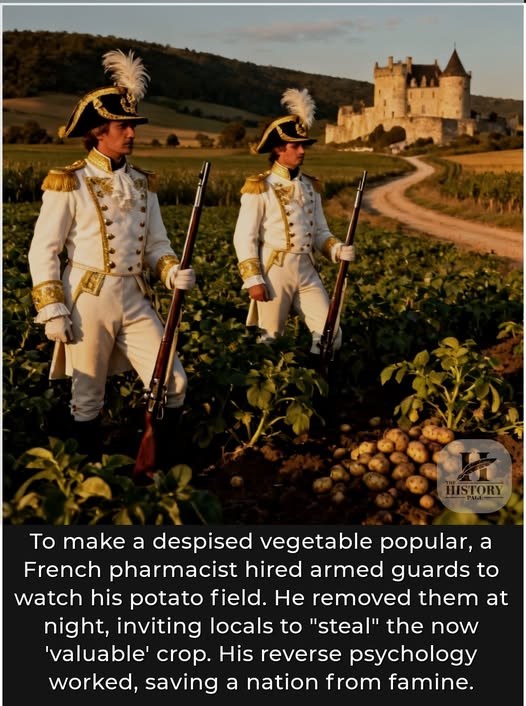
It’s hard for us to imagine anyone fearing a potato, but in 18th-century France, the distrust was serious. Part of the problem was that potatoes aren’t mentioned anywhere in the Bible, which made people suspicious.
Since they grow underground, some folks associated them with darkness and disease. Parmentier, being a pharmacist and a scientist, knew this was nonsense.
In 18th century France, when the government couldn’t convince people to eat potatoes, one wise man used a bit of reverse psychology to make them desire the very food that could save them. 
His name was Antoine-Augustin Parmentier, a pharmacist who saw the potential of the humble potato while he was a prisoner of war in Prussia. The Prussians fed him potatoes, and he realized they were not only healthy but could fight the famines that plagued his French homeland.
Back in France, however, people were suspicious. They thought potatoes were strange, unfit for humans, and even believed they caused diseases like leprosy.
So Parmentier got creative. He hosted lavish dinners for influential men like Benjamin Franklin, serving nothing but dishes made from potatoes. The guests were amazed.
He even presented a bouquet of potato blossoms to King Louis XVI and Queen Marie Antoinette. They liked them so much they started wearing them, which made the flowers a fashion trend at court. Suddenly, the potato was associated with royalty.
His most clever move came in 1787. The king gave him a plot of land to grow potatoes. Parmentier hired armed guards to watch over the field during the day, making it seem like the crop was incredibly valuable.
But at night, the guards would leave. Curious locals, thinking they were getting away with something precious, would sneak in and take the potatoes for themselves to plant in their own gardens.
Through his brilliant efforts, Parmentier changed the nation’s mind. The once-despised tuber became a staple food, saving countless people from starvation and becoming a celebrated part of French cuisine.
His work was so impressive that in 1773, he won a prize from the Academy of Besançon for his research showing how potatoes could prevent the kind of malnutrition that led to diseases during famines.
It just goes to show how wisdom and perseverance can overcome long-held fears, and how even the most humble things can be used for great purpose.
Sources: National Geographic, Farmer’s Almanac
